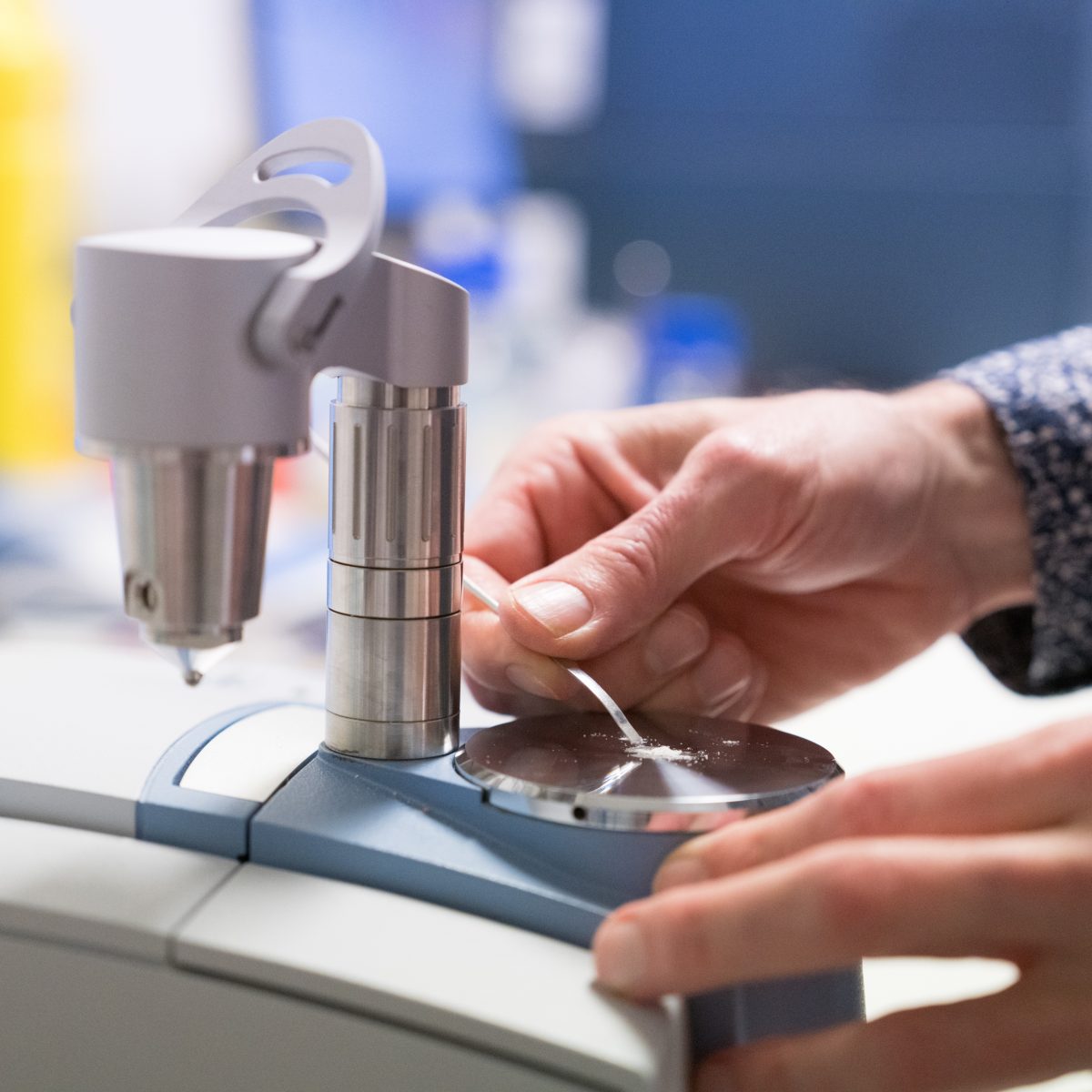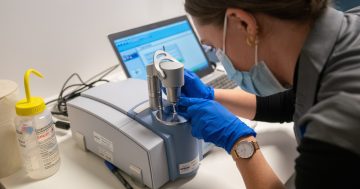
CanTEST’s pill-testing service has undoubtedly saved lives in the ACT. Photo: Nic Vevers/ANU.
In the ACT, we are fortunate to be in a position of national leadership when it comes to harm reduction measures for illicit drug use.
In 2023, we celebrated the passing of the Drugs of Dependence (Personal Use) Amendment Act 2022, which decriminalised possession of small quantities of illicit drugs for personal use. Since implementation, we have seen a collaborative cross-sectoral approach to establish this important health-based intervention in our community.
Notably, the fears and concerns we heard from opponents of this reform have not been realised.
In the last ACT budget, we also welcomed a further three years of funding for Canberra’s drug-checking service, CanTEST. This service may look unassuming from the street but it is quite literally saving lives.
Funding for specialist alcohol and other drug treatment services in the ACT is around $30 million annually, leaving around a $24 million shortfall of the projected investment required to meet treatment demand in the ACT.
While we have some successes to be proud of, resourcing for the frontline of the alcohol and drug treatment sector in the ACT has remained largely stagnant over many funding cycles. This is despite population growth and increasing demand for services, particularly in areas of high complexity.
We need our sector to be able to innovate and thrive, not just stay alive.
A supervised consumption room would also play an important role in a comprehensive harm reduction framework, reducing drug-related harms to the individual and the broader community. The Alcohol, Tobacco and Other Drug Association of the ACT (ATODA) would fully support a budget commitment to resourcing this service for the ACT in the next term of government.
The expertise of our membership is ready and available to design a service model in partnership with government that is right for the ACT community context.
Unfortunately, we have seen limited progress on alcohol demand and harm reduction in the ACT.
National alcohol-related deaths reached the highest peak in 10 years in 2022. Online sales and delivery of alcohol flourished during COVID-19 lockdowns, and our regulatory settings have simply not kept pace.
In the ACT, 46 per cent of clients accessing ATOD services in 2023 reported alcohol as a drug of concern and 43 per cent of ATODA clients nationally reported it as their primary drug of concern.
In this election, ATODA is calling on all parties to prioritise a response to the health harms caused by alcohol in our community. One easy step would be to review and amend the membership of the ACT Liquor Advisory Board (five of the eight currently appointed members have a vested commercial interest in the sale of alcohol).
ATODA is also calling for licensing regulations to restrict alcohol deliveries to 10 am to 10 pm, and implementation of a two-hour safety pause to decrease the ease with which alcohol can enter the home, especially late at night.
Despite the overall decline in cigarette smoking rates over the past few decades, tobacco remains the leading cause of preventable death and disease in Australia. It is a persistent public health challenge that needs a persistent response.
ATODA specifically recommends strategies to support diverse populations in reducing tobacco use that include but are not limited to best practice combination nicotine replacement therapy and appropriate educational resources.
There has also been a significant uptake in the use of e-cigarettes in the ACT, with approximately one in five (18 per cent) of the population having ever used e-cigarettes in 2022-23 (an increase from 11.3 per cent in 2019).
ATODA supports the expanded model of therapeutic access to e-cigarettes and the need for ongoing research into the health harms that may arise from e-cigarette use.
The housing affordability crisis continues to impact the health and well-being of some of the most vulnerable people in our community. In 2023, 39.3 per cent of people accessing ACT specialist alcohol and drug services were at risk of experiencing homelessness.
No one is saying this is an easy fix – but it is essential. Investing in affordable, safe and secure housing in housing in the ACT, along with the systems we need to manage housing allocation effectively would undoubtedly lead to broader societal benefits. Downstream public costs in health, justice and welfare are also offset when we have a secure housing ecosystem for everyone in our community.
This election is an opportunity to vote for a vibrant, caring, sustainable and dynamic community sector in the ACT. For ATODA, this means a healthy, well and safe ACT community with the lowest possible levels of alcohol, tobacco and other drug-related harms.
Anita Mills is the CEO of the Alcohol, Tobacco and Other Drug Association of the ACT.




















